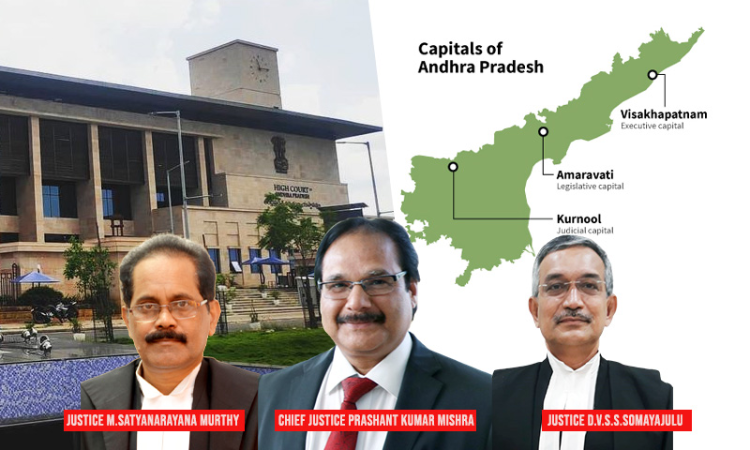- Home
- /
- News Updates
- /
- Andhra Pradesh High Court Starts...
Andhra Pradesh High Court Starts Hearing Challenge To 'Three-Capitals' Law
Sparsh Upadhyay
17 Nov 2021 2:11 PM IST
The Andhra Pradesh High Court has started hearing a clutch of writ petitions filed before it challenging the A. P. Decentralisation and Inclusive Development of All Regions Act 2020 and Andhra Pradesh Capital Region Development (Repeal) Act 2020. Essentially, these Acts propose the formation of three capitals for the state. The Acts intend to develop Amaravati, Visakhapatnam,...
Tags
three capitalAndhra Pradesh High CourtChief Justice Prashant Kumar MishraJustice M. Satyanarayana MurthyJustice D. V. S. S. SomayajuluAndhra Pradesh Reorganisation ActAmaravati3 capitalsA. P. Decentralisation and Inclusive Development of All Regions Act 2020Andhra Pradesh Capital Region Development (Repeal) Act 2020VisakhapatnamKurnool
Next Story



